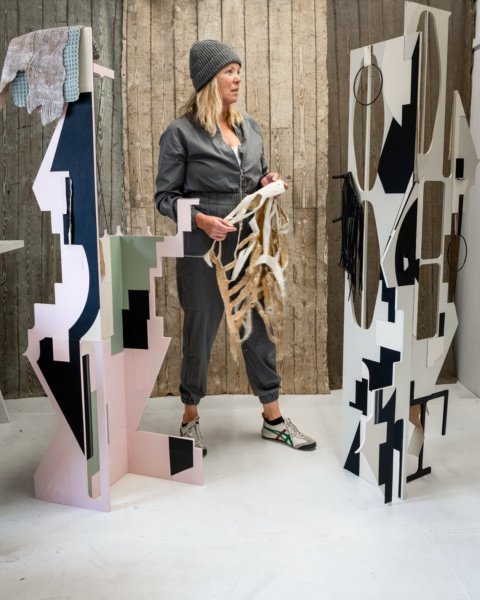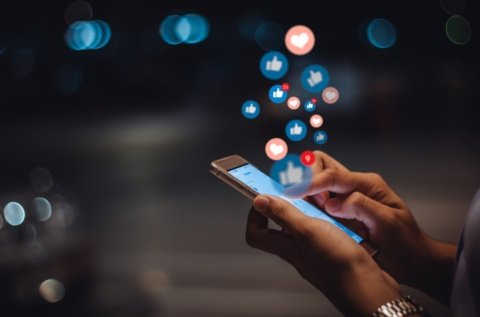Universal Music Group has announced a new partnership with SoundLabs, a “responsible” AI music tools company, to provide AI music editing tools to UMG talent. This includes a real-time personalized AI voice clone plug-in, called “MicDrop,” due to launch later this summer.
The SoundLabs AI-powered music editing tools (AU, VST3, AAX) hook up to all major digital audio workstations (DAW), including Logic, ProTools, Ableton and more, to let musicians clean up their vocals, make changes, and even shape-shift their voices in the click of a button, thanks to AI technology. With MicDrop, UMG artists can create their own AI voice models, but these custom models will exclusive to their creative use, not available to the general public.
The news falls perfectly in line with the company’s “responsible” AI strategy, laid out by UMG CEO and chairman, Lucian Grainge, at the beginning of 2024. As he stated in a January memo to staff, obtained by Billboard, Grainge wrote that even though some experts viewed AI as “a looming threat,” UMG’s view was that AI would be “presenting opportunities” for the company. “Just as we did with streaming, we went out to turn those opportunities into reality.”
He went on to explain his two-prong approach to embracing what he called UMG’s “responsible AI initiative.” First, he would lobby for “guardrails,” or public policies to protect artists’ name, image, voice, and likeness from wrongful impersonation and other “basic rules.”
Second, Grainge set out “to forge groundbreaking private-sector partnerships with AI technology companies,” which now includes its deal with SoundLabs. “In the past, new and often disruptive technology was simply released into the world, leaving the music community to develop the model by which artists would be fairly compensated and their rights protected,” Grainge continued. “In a sharp break with that past, we formed a historic relationship with our longtime partner, YouTube, that gives artists a seat at the table before any product goes to market, including helping to shape AI products’ development and a path to monetization.”
SoundLabs was co-founded by Grammy-nominated producer, composer, software developer and electronic artist BT. After a 25-year career, working with David Bowie, Madonna, Sting, Death Cab for Cutie, Peter Gabriel and Seal, he turned to software development to create new music tools to help producers innovate. Over the years, his software products — including patented audio plugins like Stutter Edit, BreakTweaker (iZotope), Polaris, Phobos (Spirfire Audio) — have generated $70 million in gross sales.
The company’s other co-founders — Joshua Dickinson, Dr. Michael Hetrick and Lacy Transeau — are all aligned with BT on an “artist-first” approach to making AI music tools. As a press release from UMG about the partnership states: “SoundLabs was founded with a foundational respect for intellectual property rights and is focused on helping artists retain creative control over their data and models.”
“It’s a tremendous honor to be working with the forward-thinking and creatively aligned Universal Music Group. We believe the future of music creation is decidedly human. Artificial intelligence, when used ethically and trained consensually, has the promethean ability to unlock unimaginable new creative insights, diminish friction in the creative process and democratize creativity for artists, fans, and creators of all stripes. We are designing tools not to replace human artists, but to amplify human creativity,” says BT.
Chris Horton, svp of strategic technology at Universal Music adds: “UMG strives to keep artists at the center of our AI strategy, so that technology is used in service of artistry, rather than the other way around. We are thrilled to be working with SoundLabs and BT, who has a deep and personal understanding of both the technical and ethical issues related to AI. Through direct experience as a singer and in partnership with many vocal collaborators, BT understands how performers view and value their voices, and SoundLabs will allow UMG artists to push creative boundaries using voice-to-voice AI to sing in languages they don’t speak, perform duets with their younger selves, restore imperfect vocal recordings, and more.”


